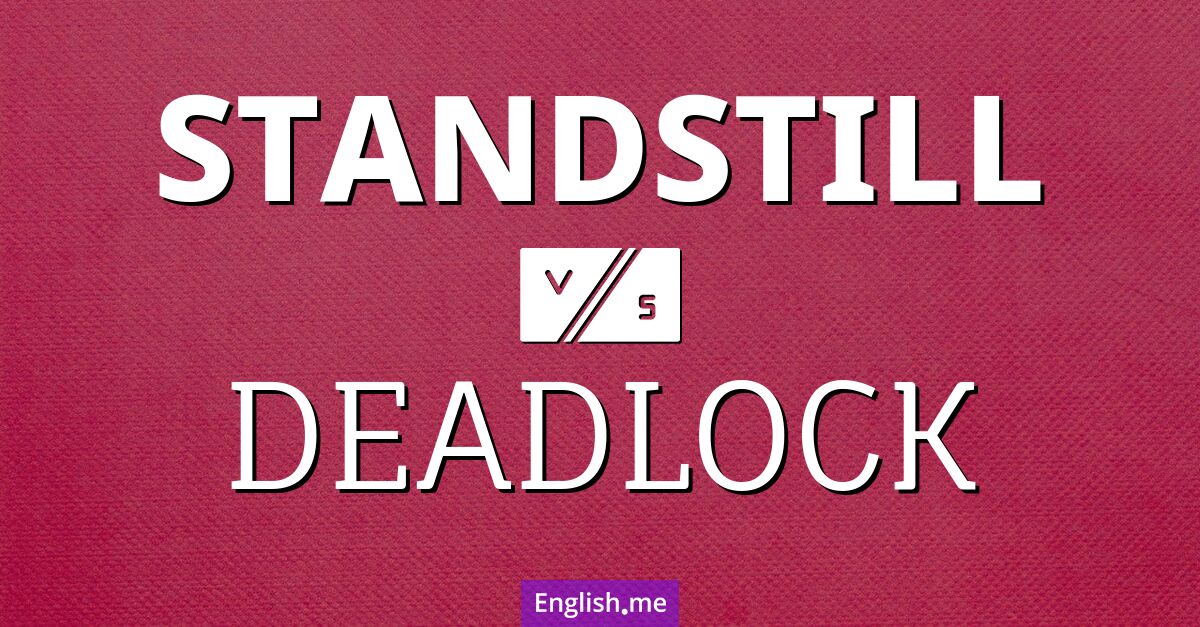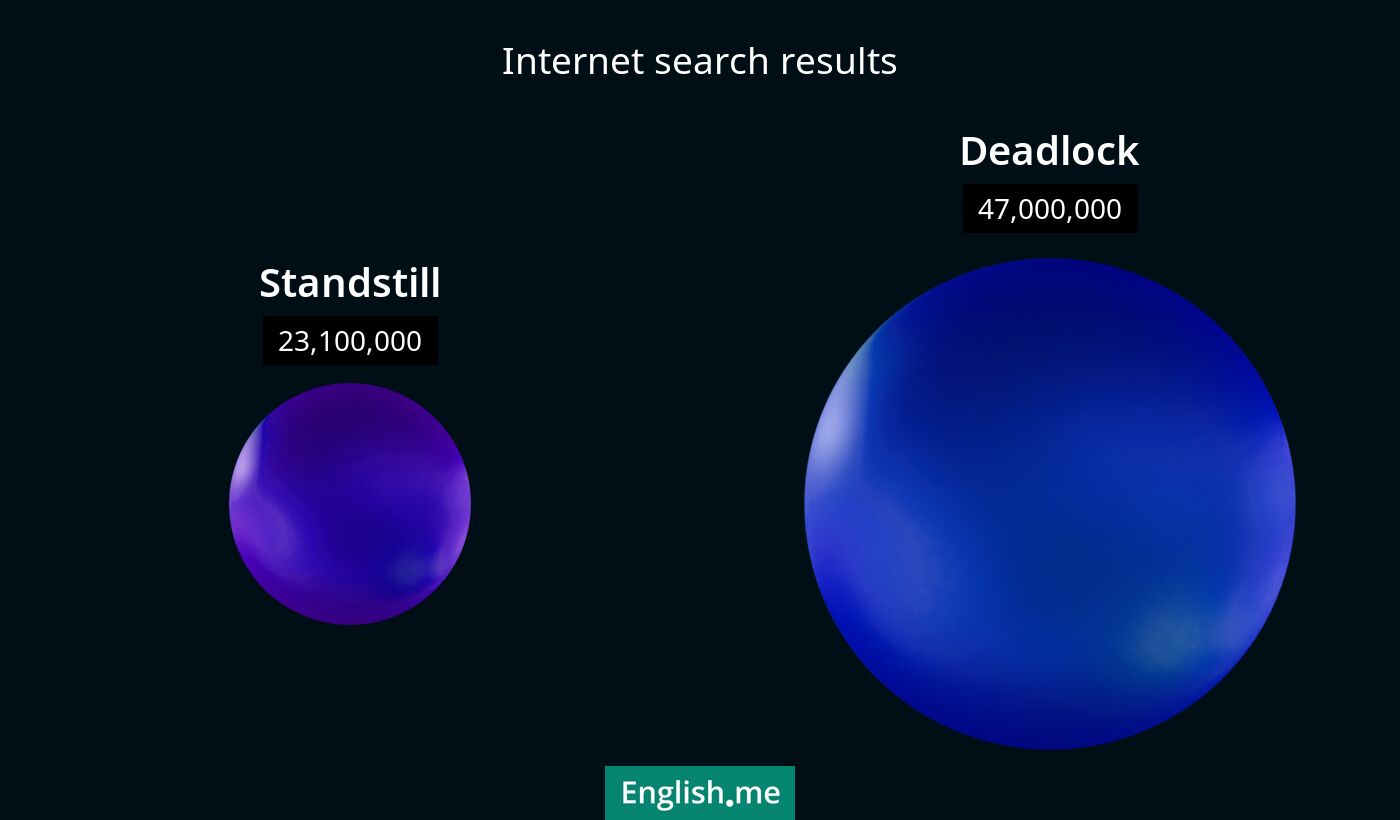When movement halts: a closer look at "standstill" vs "deadlock"
Reviewed and edited by  Lloyd Cooper 22/10/2024, 01:08
Lloyd Cooper 22/10/2024, 01:08
English.me team member

 What is similar?
What is similar?
Both "standstill" and "deadlock" refer to a situation where progress is halted. They can describe scenarios where no movement or advancement is happening, often due to a lack of agreement or resolution.
 What is different?
What is different?
"Standstill" generally refers to a state where all movement has temporarily ceased, often implying a pause that can be resumed. "Deadlock" suggests a more severe situation where two or more parties are unable to find a resolution, often indicating a stalemate or impasse that is difficult to overcome.
 Which one is more common?
Which one is more common?

 Examples of usage
Examples of usage
Standstill- Traffic came to a standstill due to the accident on the highway.
- Negotiations were at a standstill while both sides reassessed their positions.
- Production was at a standstill because of a machinery breakdown.
- The talks ended in a deadlock, with neither side willing to compromise on their demands.
- The jury reached a deadlock, unable to come to a unanimous decision.
- Efforts to pass the bill resulted in a deadlock between the two political parties.

 English
English español
español française
française italiano
italiano deutsche
deutsche 日本語
日本語 polski
polski česky
česky svenska
svenska Türkçe
Türkçe Nederlands
Nederlands